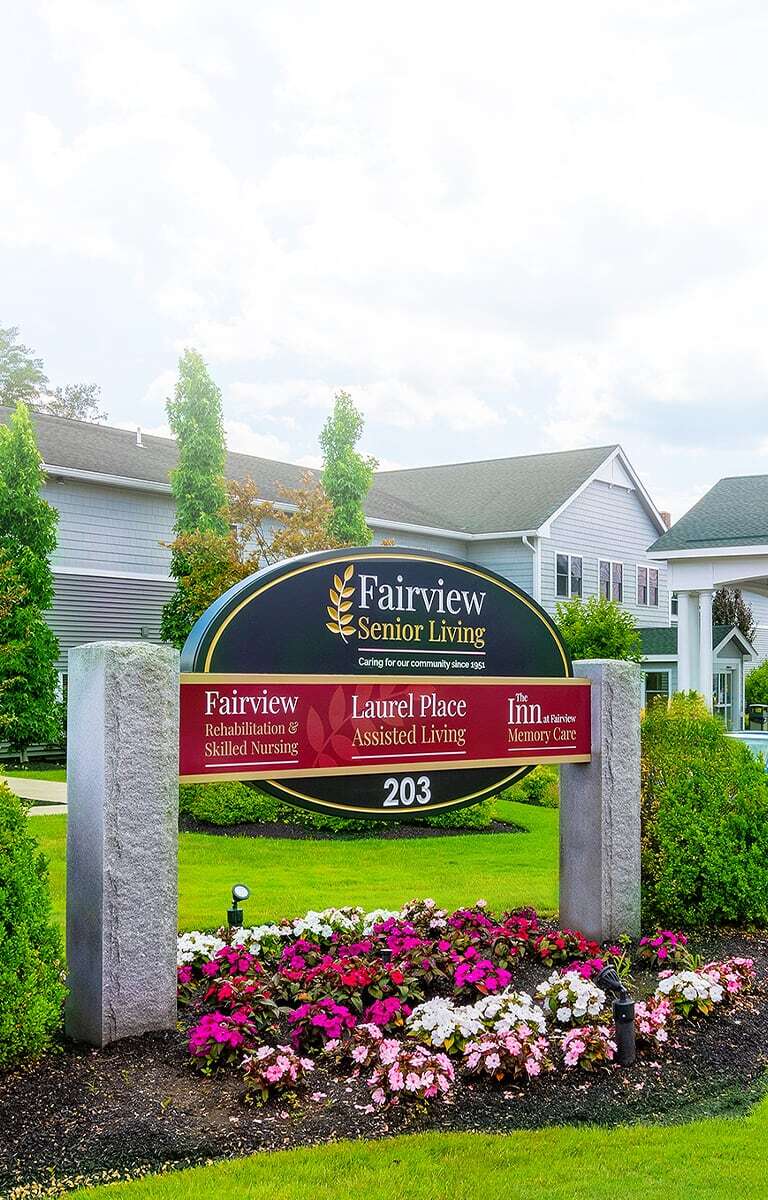Each year, more than 16 million Americans provide more than 17 billion hours of unpaid care for family and friends with Alzheimer’s and other dementias, according to the Centers for Disease Control and Prevention.
Sometimes caregivers live with or close to the person, and other times they live far away. No matter what kind of caregiver you may be, caring for a person with Alzheimer’s disease or dementia can be overwhelming at times. Family caregivers of individuals with Alzheimer’s and related dementias are at greater risk for anxiety, depression, and poorer quality of life than caregivers of individuals with other conditions, and they often experience caregiver burnout.
Greg Batchelder, BS, NHA, CADDCT is the Executive Director at The Inn at Fairview Memory Care in Hudson, New Hampshire. Batchelder has over 21 years of experience in the healthcare industry and is a Certified Alzheimer’s Disease and Dementia Care Trainer and a Licensed Nursing Home Administrator. He points out that, “sometimes even the act of communicating with someone with memory loss can be extremely challenging and frustrating for the caregiver. Communication is hard for people with Alzheimer’s disease because they struggle with remembering things. They may find it hard to choose words, or forget what they want to say. You may feel impatient and wish they could just say what they want. It is important to understand that the disease causes changes in communication skills.”
These tips from the National Institute on Aging may help with communicating effectively with a person with Alzheimer’s disease or another form of dementia:
- Make eye contact and call the person by name.
- Be aware of your tone, how loud your voice is, how you look at the person, and your body language.
- Encourage a two-way conversation for as long as possible.
- Use other methods besides speaking, such as gentle touching.
- Try distracting the person if communication creates problems.
- Be aware of nonverbal communication. As people lose the ability to talk clearly, they may rely on other ways to communicate their thoughts and feelings. For example, their facial expressions may show sadness, anger, or frustration. Grasping at their undergarments may tell you they need to use the bathroom.
To encourage the person to communicate with you:
- Show a warm, loving, matter-of-fact manner.
- Hold the person’s hand while you talk.
- Be open to the person’s concerns, even if he or she is hard to understand.
- Let him or her make some decisions and stay involved.
- Be patient with angry outbursts. Remember, they have a disease.
- The Inn at Fairview’s Batchelder adds, “if the person is sitting, either sit or kneel so you are at their level, instead of standing over them, which can be very intimidating.”
To speak effectively with a person who has Alzheimer’s:
- Offer simple, step-by-step instructions.
- Repeat instructions and allow more time for a response.
- Try not to interrupt.
- Don’t talk about the person as if he or she isn’t there.
- Don’t talk to the person using baby talk.
Be direct, specific, and positive when communicating:
- Try saying “Let’s do it this way” instead of pointing out mistakes.
- Try saying “Please do this” instead of “Don’t do this.”
- Try saying “Thanks for helping” even if the results aren’t perfect.
- Ask questions that require a yes or no answer. For example, you could say, “Are you tired?” instead of “How do you feel?”
- Limit the number of choices. For example, you could ask, “Would you like a hamburger or chicken for dinner?” instead of “What would you like for dinner?”
- Use different words if he or she doesn’t understand the first time. For example, if you ask the person whether he or she is hungry and you don’t get a response, you could say, “Dinner is ready now. Let’s eat.”
- Try not to say, “Don’t you remember?” or “I told you.”
If you are considering assisted living for someone you love, The Inn at Fairview offers exceptional care for residents with cognitive impairments. “Our goal is to allow members of our community to live as independently as possible without sacrificing their health. We offer a wide range of services and amenities to ensure our residents are comfortable and happy. Our InnSights program provides individualized support our residents need and offers respite care for temporary residents. We work hard to provide the comforts of home with the security of highly-trained staff prepared to help manage cognitive impairments,” explains The Inn’s Executive Director Batchelder. For questions about The Inn at Fairview Memory Care, please contact Greg Batchelder by calling (603) 816-0070 or emailing gbatchelder@fairviewseniorliving.com.
Resources for Assistance:
The National Institute on Aging funds Alzheimer’s Disease Research Centers (ADRCs) across the U.S. that provide support, resources, and programs for people with Alzheimer’s and related dementia and their families. ADRCs offer:
- Help with obtaining diagnosis and managing your care
- Information about the diseases, services, and resources
- Opportunities for volunteers to participate in clinical trials and studies that contribute to improved understanding of dementia, which may lead to new treatments and better care
- Support groups and other special programs for volunteers and their families
For more information about Alzheimer’s and changes in communication skills:
NIA Alzheimer’s Disease Education and Referral (ADEAR) Center
(800) 438-4380
adear@nia.nih.gov
The NIA ADEAR Center offers information and free print publications about Alzheimer’s and related dementias for families, caregivers, and health professionals. ADEAR Center staff answer telephone, email, and written requests and make referrals to local and national resources.
Alzheimers.gov
Explore the Alzheimers.gov portal for information and resources on Alzheimer’s and related dementias from the federal government.
Family Caregiver Alliance
(800) 445-8106
info@caregiver.org
Family Caregiver Alliance is a national nonprofit caregiver support organization headquartered in San Francisco, California. FCA’s purpose is to “improve the quality of life for caregivers and the people who receive their care.”
Sources:




